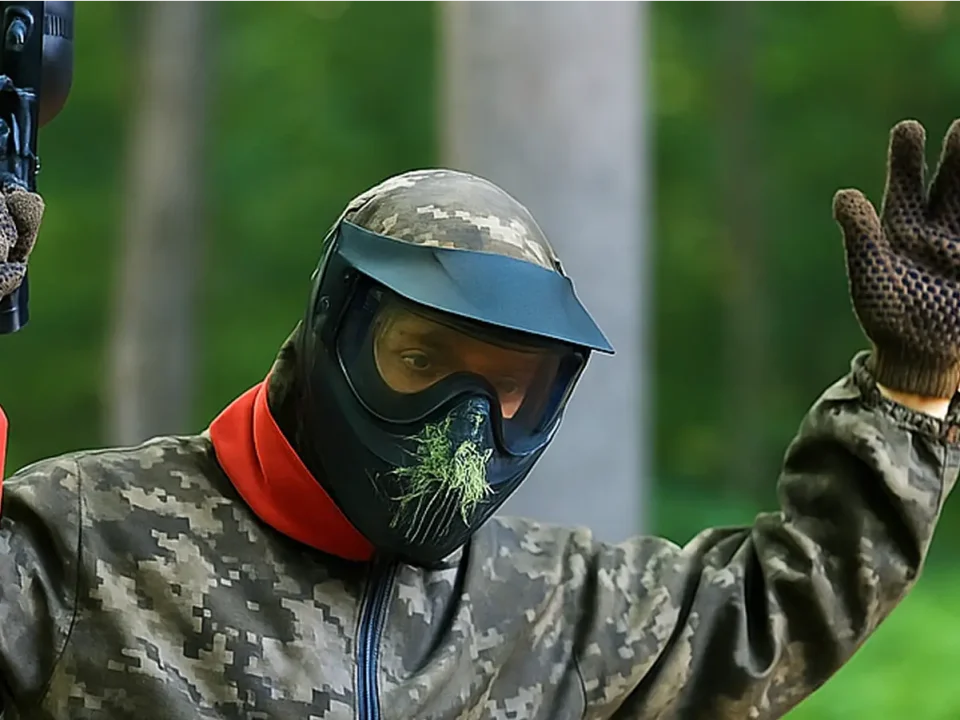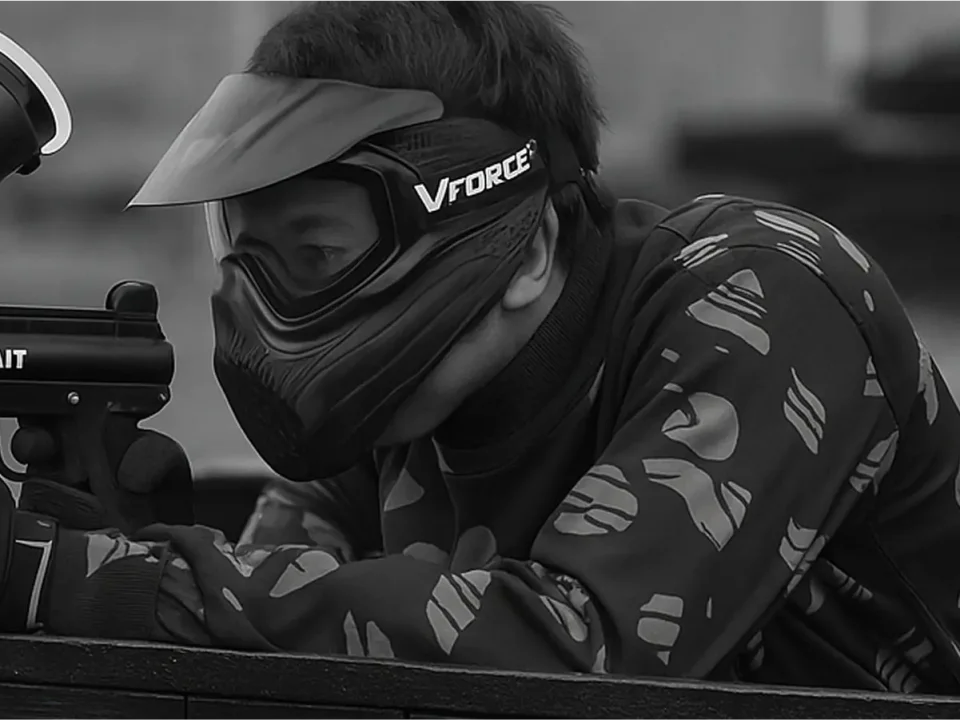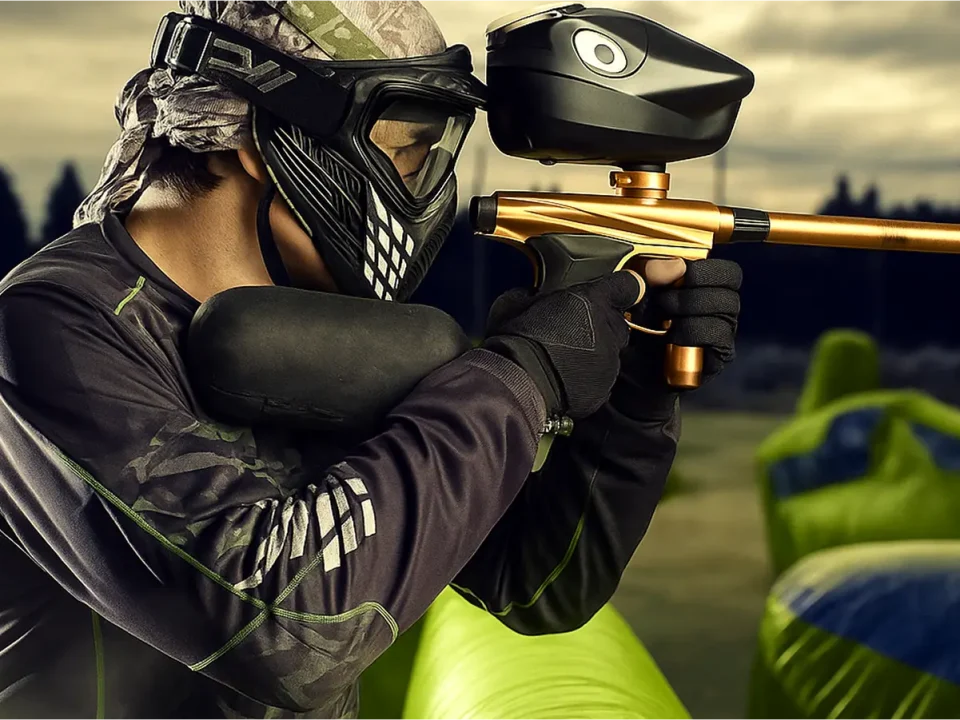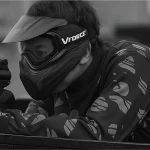
Paintball Safety Rules Everyone Must Follow
May 26, 2025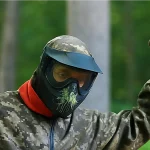
How We Transformed an Abandoned Warehouse into a Warzone
May 26, 2025To the casual observer, a paintball tournament might look like chaos: bursts of color, flying players, and shouting from every corner. But step behind the scenes, and you’ll find a world of intense preparation, strategy, and discipline that rivals any traditional sport. Competitive paintball is fast, structured, and full of skilled athletes who bring serious gear, focus, and energy to every match.
This article takes you inside the paint-splattered curtain to show you what it really takes to compete — and what the pros do differently.
It Starts Long Before Game Day
Tournament teams don’t just show up and play. Weeks (sometimes months) before the first match, they’re already practicing specific game formats, running drills, watching footage of opponents, and refining team roles. Teams will often have playbooks, set breakout strategies, and train for high-pressure scenarios.
The Gear Is Next-Level
Professional and semi-pro players bring more than just a marker and a mask. Their gear setups are precise, often including:
- High-end electronic markers like the Planet Eclipse LV2 or DLX Luxe
- Custom triggers, tuned regulators, and upgraded boards
- Thermal-lens masks to prevent fog and improve visibility
- Compression gear and slide pads for quick movement
- Communication systems (for events that allow it)
Every piece is dialed in to ensure speed, accuracy, and comfort under pressure.
Team Chemistry Is Everything
Paintball tournaments are about precision teamwork. Each player knows their job — whether it’s attacking the snake, holding the backline, or locking down lanes. Teams communicate constantly, adapt quickly, and rely on trust built over dozens of games and practices.
Pros spend as much time building communication off the field as they do on it. Many use hand signals, code words, and designated roles like field captains or in-game leaders.
Game Formats Are Fast and Ruthless
Tournament paintball (especially speedball) runs on tight formats. Most games are short, often 5 to 10 minutes, and involve objectives like flag captures or total eliminations. Fields are small and symmetrical, with inflatable bunkers in mirrored layouts.
Matches are played in sets — often first to 3 or first to 5 points. Refs are everywhere, enforcing rules with zero tolerance for cheating or unsafe play.
Between Matches: Reset and Recover
After every match, players hustle back to the staging area. The pace is nonstop: pods are refilled, air tanks recharged, gear is cleaned, and quick strategy adjustments are made. Teams often have designated pit crew members to help manage time and keep the team focused.
Staying hydrated, analyzing performance, and mentally resetting are key. There’s no room for ego — only honesty, discipline, and adaptability.
What Pros Bring That Amateurs Often Don’t
- Consistency: Every breakout, lane, and communication cue is rehearsed.
- Discipline: No unnecessary moves, no wild solo plays — every action supports the team.
- Focus: Mental strength is a massive factor in paintball. Pros stay locked in even after bad rounds.
- Respect: True pros respect refs, teammates, opponents, and the sport itself.
The Energy Is Electric
Tournaments are more than matches — they’re events. Crowds gather around fields, vendors sell the latest gear, teams chant and cheer, and the atmosphere buzzes with anticipation. Whether it’s a national championship or a regional league, the vibe is unmatched.
Final Thoughts
Behind the speed and splatter of tournament paintball is a world of serious preparation, team unity, and tactical precision. Competing isn’t about just shooting fast — it’s about strategy, discipline, and flawless execution under pressure. For those who step onto the tournament field, it’s more than a game. It’s a battle of mind, body, and team.
Want to play at that level? Start with solid teamwork, smart drills, and a mindset that never stops learning. Because behind every epic dive and flag pull is a plan — and a player who trained to make it happen.

